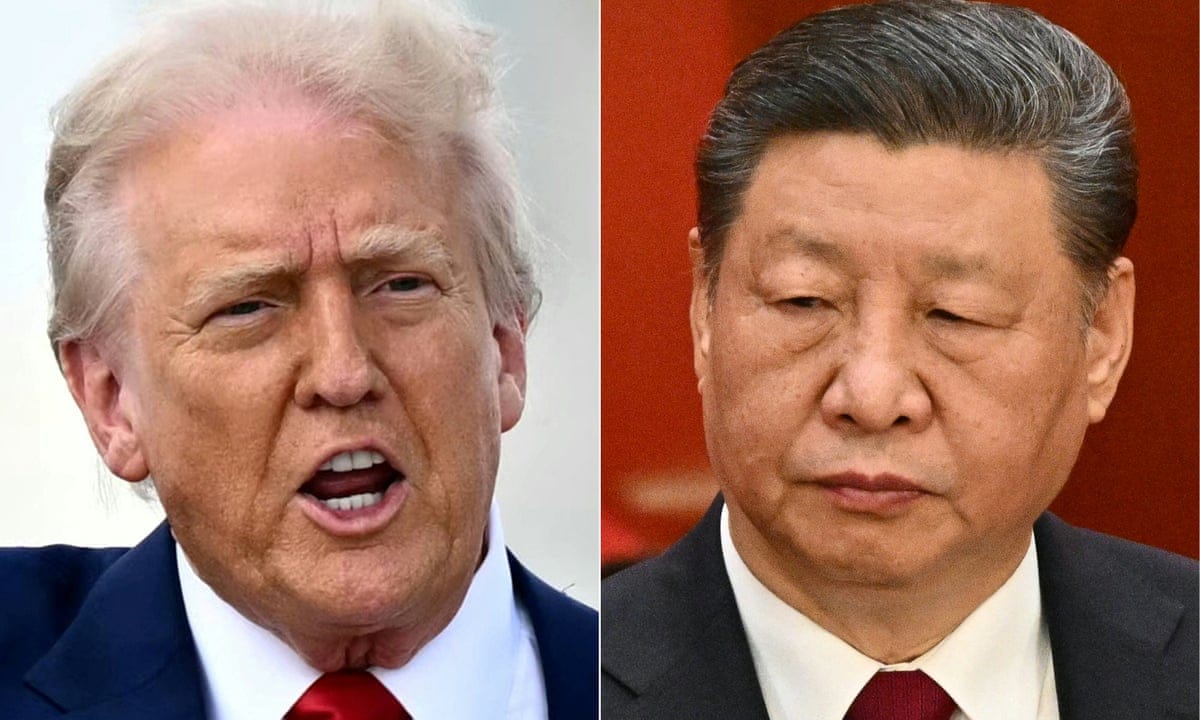A significant policy shift has occurred in the United States as President Donald Trump announced a temporary suspension of new trade barriers for most countries over the next three months, with one notable exception: China. During this period, US tariffs will stand at just 10%, but on Chinese imports specifically, they've been elevated to an imposing 125%.
In contrast, as per a fresh escalation of tension between these economic powerhouses, the People’s Republic has imposed new retaliatory tariffs amounting to approximately 84% for all American products. This aggressive move was set into motion immediately following Trump's latest action on Chinese goods and came amidst a broader global market volatility sparked by these trade disputes, resulting in significant shifts across stock markets worldwide with particular impact felt within the US itself—a country more reliant on imported products from China than vice versa.
This new development comes as Beijing has shown no signs of yielding under pressure; instead maintaining its stance that it will not blink first in this economic confrontation, even when faced with Trump's latest tariff increases—an action which may be politically precarious for China domestically.
The repercussions are felt across the world as major economies like Germany and France have seen their stock markets take a hit due to these tit-for-tat trade disputes between US President Trump’s administration, represented by Treasury Secretary Scott Bessent who believes this strategy was always at play—and China's increasing tariffs.
In Europe too, the impact of American policies has been felt with 25% levies on a range of goods imported from America now in effect as part of an initial retaliatory move by some EU members; however Hungary stands out for its refusal to join this countermeasure which primarily targets agricultural products and items associated politically within Republican states.
Despite the temporary halt, there seems room for negotiation between these two economic titans as Trump expressed his interest in engaging with allies on trade agreements—which could potentially involve China too; a sentiment he reinforced by encouraging citizens to stay calm amidst this global trading turmoile.
After Wall Street markets rocketed following the announcement of pause, it's evident that these fluctuations have had significant effects on various industries—especially pharmaceutical companies targeted under Trump’s aggressive strategy which he now seems to rethink in light of market stability.
This policy shift by President Donald Trump has led stock markets worldwide into a roller coaster ride, with notable rises and falls that have been seen globally; however this temporary halt provides some relief as these tensions pause for three months—at least until the end of July when it's anticipated what direction will be taken next in America’thy global trade strategies.
Read next

Netflix Expects Profit Surge with Millions Joining Subscriber Base Over Three Month Period
After implementing measures against password sharing and introducing commercis into the streaming experience, along with substantial funding for live TV events, Netflix announced it anticipates to double profits this quarter following an influx of over 5 million new subscribers during summer.
Popular shows like The Perfect Couple and Emily in

British Pound Declines Amid First Drop in Inflation Below 2% Target Since 2thyear-end - Business Updates Live
UK's price growth has dipped below its set goal after nearly four years and five months, as indicated by recent statistics from the Office for National Statistics (ONS). Inflation measured through consumer prices index stands at a yearly 1.7% in September—a reduction from August’s rate

Boeing Aims for Up to $25 Billion via Stock and Debt Offering Expansion
Boeing is pursuing up to $25bn in an effort to strengthen its finances as the aerospace giant grapples with production delays due to labor disputes and persistent safety issues.
A regulatory announcement by the firm on Tuesday revealed plans for a stock and debt offering, aiming to provide Boeing flexibility

